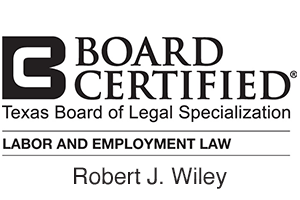in Austin, Texas
Unpaid Wages
You Must Be Paid on Time and in Full
Regardless of the nature of your job or the way in which you are supposed to be paid, you should receive a paycheck at the end of each pay period. Employers who refuse to pay their employees for work they have done are in violation of a number of laws, including both the federal Fair Labor Standards Act, the state-level Texas Payday Law, and common law standards for contracts. The Fair Labor Standards Act establishes a minimum wage and guarantees employees access to overtime pay, while the Texas Payday Law requires employers to deliver paychecks on time and in full. Therefore, if you do not receive a paycheck, are only paid for part of the hours you worked (including a lack of compensation for overtime pay), or are paid at a level below minimum wage, your employer is violating federal and Texas state law.
Common Sources of Lost Wages
Although it is relatively rare for employers to simply refuse entirely to pay their employees for work performed, employers do sometimes make illegal deductions and require their employees to work hours unpaid. Some common strategies of this kind include refusing to pay workers for breaks under 20 minutes, deducting the cost of register shortages or broken equipment from worker paychecks, charging employees for their uniforms (if doing so would reduce their pay below minimum wage), or making employees clock in 15 minutes or more before their shift is supposed to start. None of these practices are legal, and employers cannot pick and choose what hours to compensate employees for or make deductions from an employee’s paycheck. If an employer fails to pay their employees for carrying out their employment duties, that often constitutes a common law breach of contract. In this situation, the employees could be awarded their lost wages as compensation for their employer’s breach.
Some Things to Know About Commissions
Employees who are paid based on commission face a variety of unique pitfalls. Since employers who pay commission can pay employees a lower hourly wage, it is especially important to make sure you receive every cent of commission that you earned. Workers who receive commission often find that their employment contract controls when and how commissions are earned and paid. Because of this, it is vitally important that these agreements be in writing. You should keep careful records of the work you have done, so that if you do not receive commission that you should have earned you can make as strong a case as possible for breach of contract. The Austin employment lawyers at Austin Employment Lawyers, P.C. can also help you protect your commission earnings and fight for compensation from your employer.
Compensation Under the FLSA
If you can prove that your employer has violated the Fair Labor Standards Act, you are automatically able to recover your unpaid wages as compensation. Depending on the situation, you may also be able to recover liquidated damages, which will be equal to the unpaid wages you have already been awarded. As an example, if a court finds you are owed $10,000 in unpaid wages, you could also be awarded another $10,000 in liquidated damages for a total of $20,000. Your employer can only avoid paying these liquidated damages if they are able to show that they honestly believed they did not have to pay you the unpaid wages in question.
When and How to Take Action
Under federal law, you have two years to file an FLSA wage claim. Some aspects of employment law, such as the FLSA and class or collective action lawsuits, can be confusing, and we recommend that you talk to an attorney if you are worried about whether or not you are being paid correctly. Austin Employment Lawyers, P.C.’s Austin employment lawyers are experienced defenders of workers’ rights and will fight to make sure you receive the pay you deserve. If you have evidence of unpaid wages, or think you have a claim, you can get in touch with us by filling out our intake form or calling our office at (512) 271-5527.







